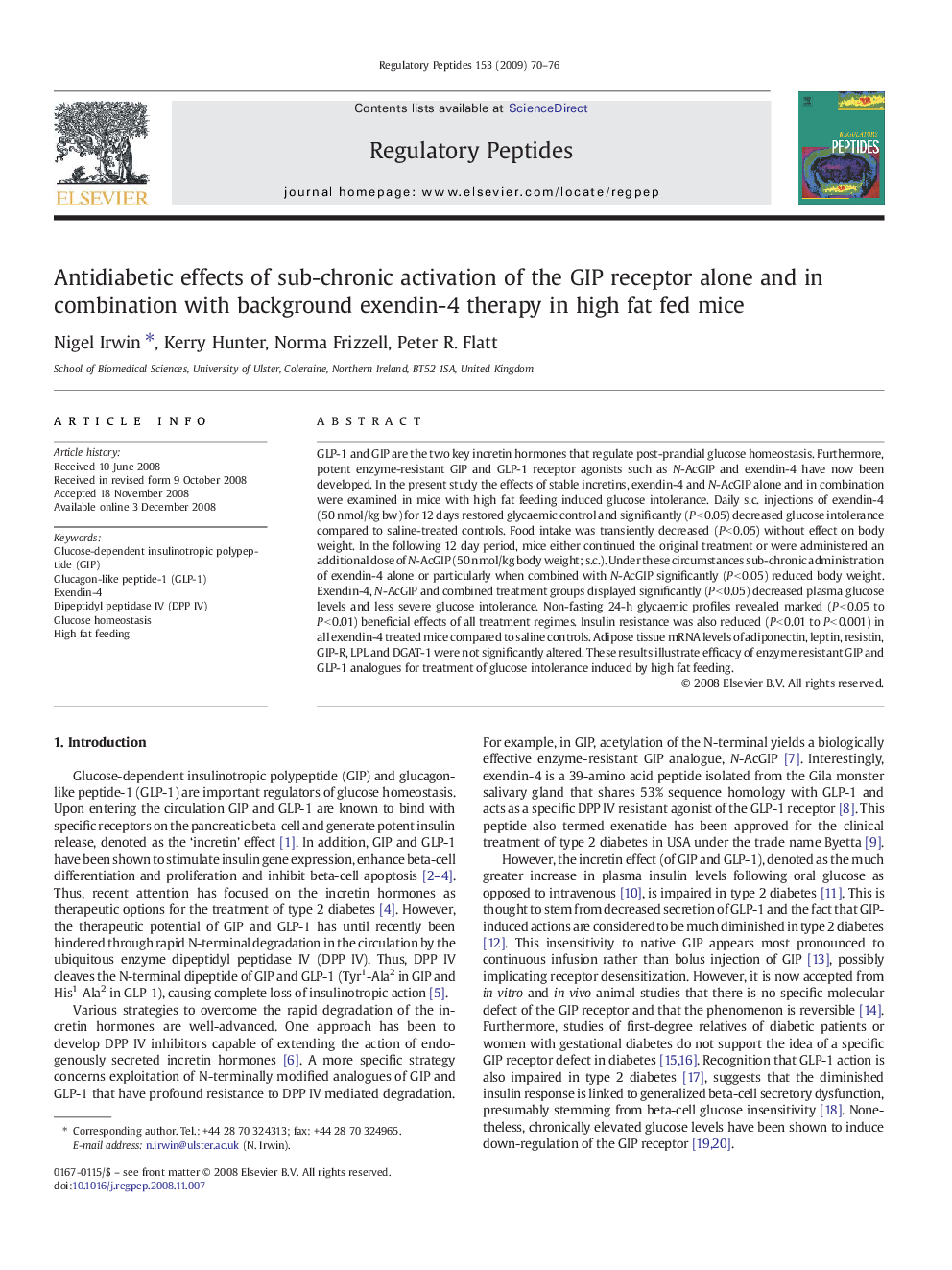| Article ID | Journal | Published Year | Pages | File Type |
|---|---|---|---|---|
| 2022910 | Regulatory Peptides | 2009 | 7 Pages |
GLP-1 and GIP are the two key incretin hormones that regulate post-prandial glucose homeostasis. Furthermore, potent enzyme-resistant GIP and GLP-1 receptor agonists such as N-AcGIP and exendin-4 have now been developed. In the present study the effects of stable incretins, exendin-4 and N-AcGIP alone and in combination were examined in mice with high fat feeding induced glucose intolerance. Daily s.c. injections of exendin-4 (50 nmol/kg bw) for 12 days restored glycaemic control and significantly (P < 0.05) decreased glucose intolerance compared to saline-treated controls. Food intake was transiently decreased (P < 0.05) without effect on body weight. In the following 12 day period, mice either continued the original treatment or were administered an additional dose of N-AcGIP (50 nmol/kg body weight; s.c.). Under these circumstances sub-chronic administration of exendin-4 alone or particularly when combined with N-AcGIP significantly (P < 0.05) reduced body weight. Exendin-4, N-AcGIP and combined treatment groups displayed significantly (P < 0.05) decreased plasma glucose levels and less severe glucose intolerance. Non-fasting 24-h glycaemic profiles revealed marked (P < 0.05 to P < 0.01) beneficial effects of all treatment regimes. Insulin resistance was also reduced (P < 0.01 to P < 0.001) in all exendin-4 treated mice compared to saline controls. Adipose tissue mRNA levels of adiponectin, leptin, resistin, GIP-R, LPL and DGAT-1 were not significantly altered. These results illustrate efficacy of enzyme resistant GIP and GLP-1 analogues for treatment of glucose intolerance induced by high fat feeding.
